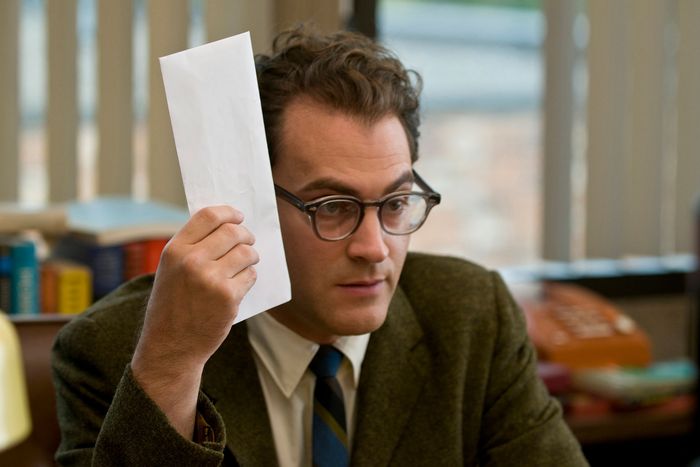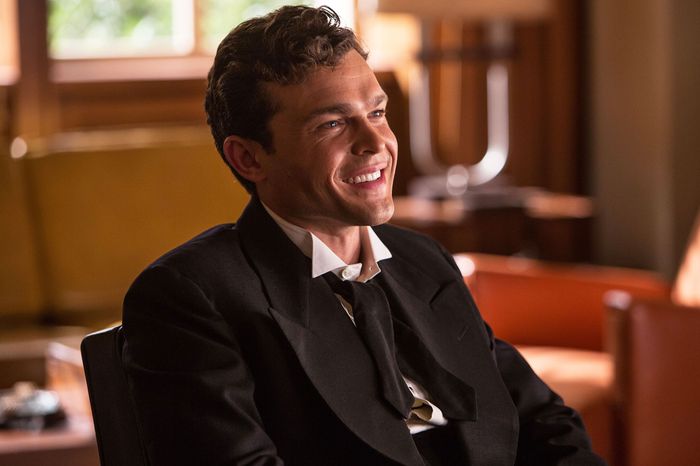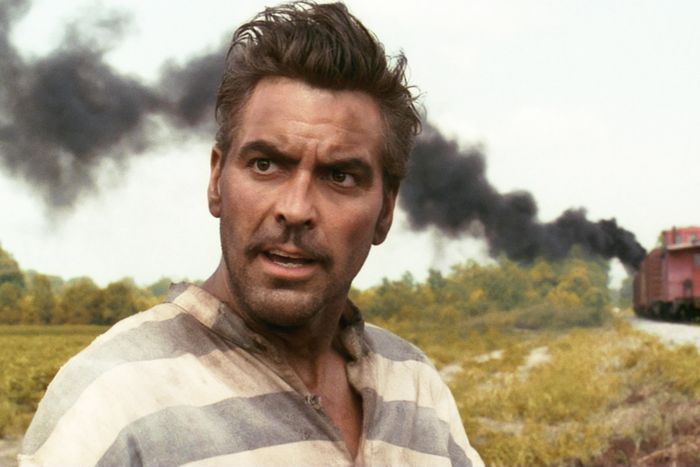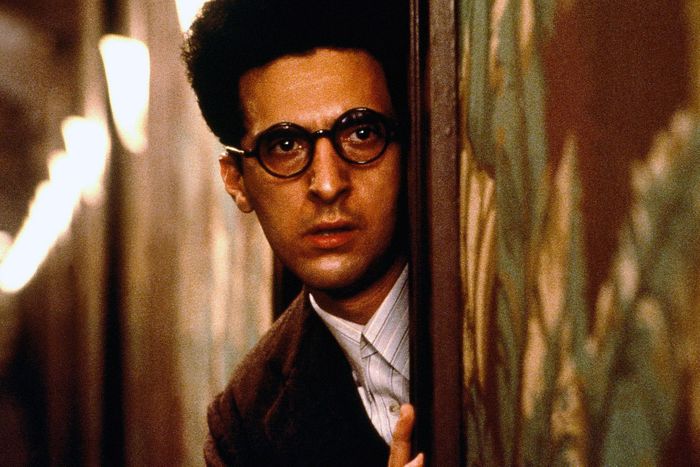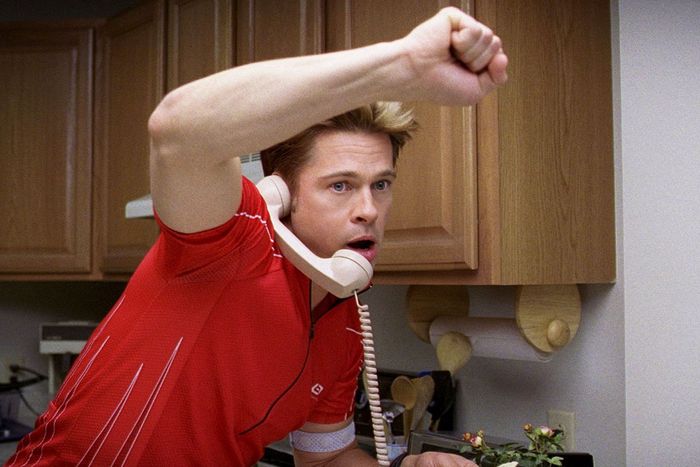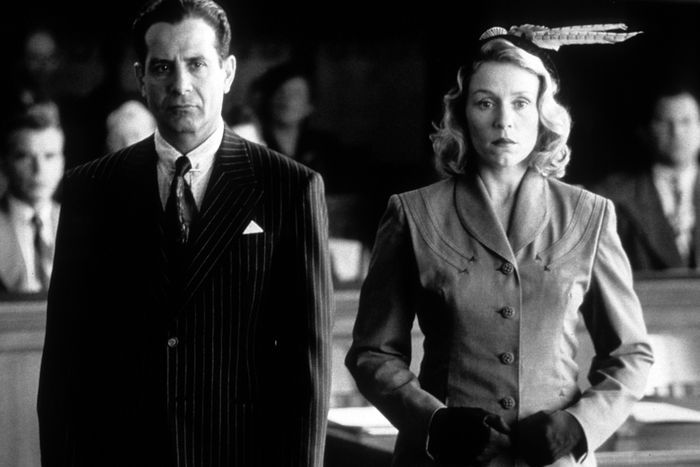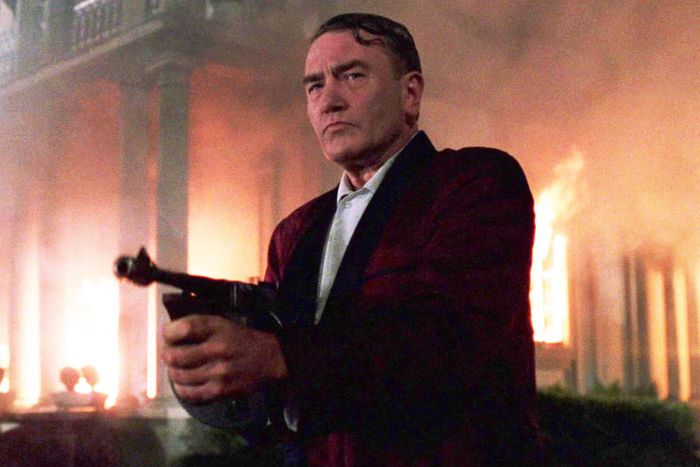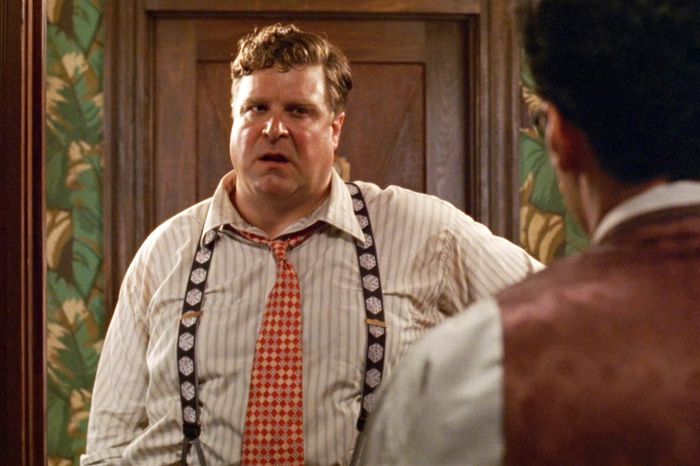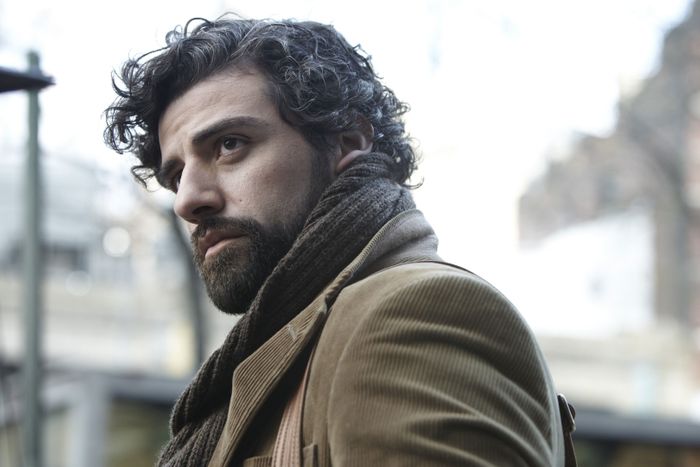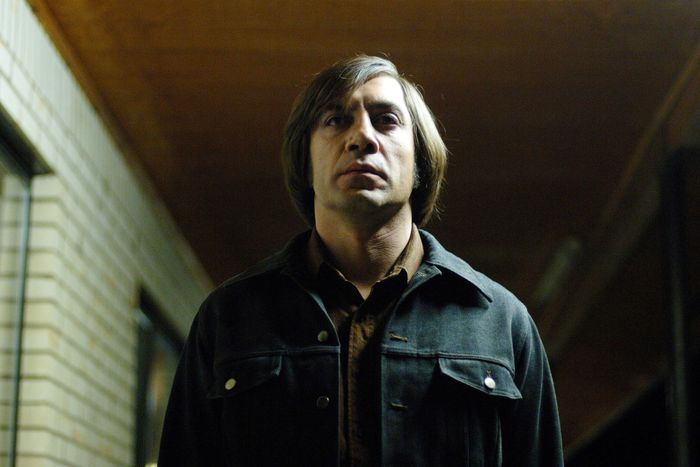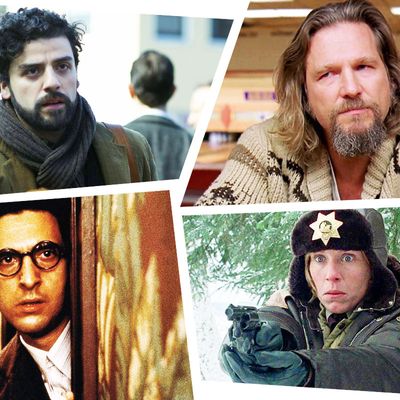
No one writes film characters like Joel and Ethan Coen. Since their debut with 1984’s Blood Simple, they have been delivering unforgettable faces and memorable personalities in film after film. There are arguably no filmmakers of their generation who are better at launching character names into the cultural stratosphere. We live in a high-concept era of filmmaking, but it’s the faces, lines, people that bring fans back to the Coens, from the Dude to Marge Gunderson to, now, Buster Scruggs — and dozens in between.
It’s remarkably difficult to pare their career down to only 20 personalities, leaving out great acting performances and superb characters like Carl Showalter, Sy Ableman, Rooster Cogburn, and dozens more. They’re probably the only modern filmmakers for which the Nos. 21 to 40 version of this list would contain nearly as much greatness as the top 20. With that in mind, we have attempted to rank the most unforgettable Coen characters, the ones that define the Coen style and filmography. Their movies wouldn’t be the same without these 20 people.
20. Larry Gopnik in A Serious Man
“The uncertainty principle. It proves we can’t ever really know … what’s going on. So it shouldn’t bother you. Not being able to figure anything out. Although you will be responsible for this on the midterm.”
At first, it may seem like Sy Ableman is the obvious personality to pull from one of the Coen’s most underrated films — even if just for the genius of his name alone — but this story and film absolutely belong to Michael Stuhlbarg as Larry Gopnik. Much more than just the straight man in a story of exaggerated supporting characters, Larry is our surrogate in an unfair world, someone who we identify with as he faces down challenge after unexpected challenge and tries to retain his dignity. Stuhlbarg is one of those actors who clearly got what the Coens were going for from his first day on the production. It would be great to see him return in one of their films.
19. Hobie Doyle in Hail, Caesar!
“Would that it were so simple.”
The overall film has divided Coen fans in ways like none other in their filmography, but everyone points to Alden Ehrenreich’s performance as a highlight (well, that, and Channing Tatum dancing with sailors) of Hail, Caesar!. Many of the most memorable Coen characters are the naïve, old-fashioned traveler in a cruel world, and Hobie feels like that archetype in this parody of Golden Age Hollywood. He’s just a wide-eyed cowboy, trying to make his movies in a vicious, backstabbing vision of Tinseltown. Would that it were so simple, indeed.
18. Buster Scruggs in The Ballad of Buster Scruggs
“There’s just gotta be a place up ahead, where men ain’t low-down, and poker’s played fair. If there weren’t, what are all the songs about?”
The Coens’ latest is a masterful anthology of six short stories, filled with characters who could make this list and phenomenal performances, from Zoe Kazan, Bill Heck, and more, but the face that seems to best represent the overall work from it is that of Tim Blake Nelson. Introduced singing to the perfectly timed rhythm of his horse’s trot, Buster is clearly something of a stand-in for the Coens — he, too, doesn’t agree with a culture that has labeled him a misanthrope. But it’s the random violence of Buster’s vignette that sets the tone for the entire film. It’s a vision of the West in which victories and death are just around the corner from each other, separated by only a song.
17. Mattie Ross in True Grit
“You must pay for everything in this world, one way and another. There is nothing free except the grace of God.”
It’s not easy to steal a movie from Jeff Bridges and Matt Damon, but that’s exactly what Hailee Steinfeld does in the Coen’s Oscar-nominated remake of the classic tale of Rooster Cogburn and Mattie Ross. Is Mattie the most earnest, sincere character in Coen history? Arguably. Steinfeld certainly plays her without an ounce of the modern self-awareness or parody that a lot of current actors bring to period pieces. The result is a moving, unforgettable character, one who we come to care for more than most of the heroes of the Old West.
16. Amy Archer in The Hudsucker Proxy
“This is a face only a mother could love. On pay day.”
There’s a litany of what could be called “exaggerated” performances in the Coen canon — actors and actresses who lean into an accent or a physical tic to help their characters stand out. At first, Jennifer Jason Leigh’s supporting role in The Hudsucker Proxy feels too out-there, a clear riff on Katharine Hepburn and other fast-talking performers from the ’40s films that inspired this wacky comedy. However, as Leigh commits more and more to the style of this role, Amy Archer becomes more and more unforgettable, standing out in a movie filled with visual and stylistic flourishes; she becomes the film’s most memorable character. Well, her and the kid with the Hula-Hoop. You know, for kids!
15. Ulysses Everett McGill in O Brother, Where Art Thou
“Pete, it’s a fool that looks for logic in the chambers of the human heart.”
Picking only one bona fide role from the Coen’s riff on The Odyssey is surprisingly difficult. One of the things that works so well about the film is how balanced it is in terms of scene-stealers. Tim Blake Nelson, John Turturro, John Goodman, and Charles Durning all have unforgettable moments, but none more so than the other, which leads us back to Everett — sort of a representative of the entire motley crew of criminals, musicians, politicians, and hucksters. Besides, it would also seem a shame to not include at least one George Clooney character on this list, given how often he’s worked with the guys, and Everett is still his best.
14. Barton Fink in Barton Fink
“I’m a writer, you monsters! I create! I create for a living! I’m a creator! I am a creator!”
Is this John Turturro’s best performance? The award winner from Cannes certainly stands out in the Coen filmography as one of their best straight men, a perfect audience surrogate into a world that is at first only anxiety-producing but becomes downright terrifying. Turturro understands that for Barton to work, the character can’t be merely an observer or a blank slate, but he also allows him to be a sounding board for the larger personalities around him. It’s not just the wide-eyed stare of Barton we remember but everything he’s taking in that matters.
13. Chad Feldheimer in Burn After Reading
“I thought you might be worried about the security of your shit.”
Brad Pitt generally isn’t allowed to be funny enough in his career. It’s almost as if his good looks keep him from getting cast in comedies, so he more often plays cool guys rather than complete goofballs like Chad Feldheimer, a personal trainer who stumbles upon something he thinks could make him a fortune. It’s a shame because this is one of the most charming and hysterical performances of his career. It’s Pitt’s riff on the Coen archetype of the wide-eyed dummy, perfected by the actor’s wonderful use of his face and body. Pitt’s Chad is always moving, talking, thinking … well, maybe not the last one.
12. Freddy Riedenschneider in The Man Who Wasn’t There
“Looking at something changes it. They call it the ‘uncertainty principle.’ Sure, it sounds screwy, but even Einstein says the guy’s onto something.”
We tried to avoid small performances on this list — those that steal a Coen movie with a single scene — to focus on more fully-drawn, consistent characters, but Tony Shalhoub’s Freddy Riedenschneider is an exception we just have to make. Yes, one could include Billy Bob Thornton’s put-upon lead in this slot to represent the film too, but it’s Shalhoub’s speech about the uncertainty principle that most of us consider when thinking of the Coen’s venture into black-and-white noir. It’s a perfectly written, directed, and performed scene — one of the best in the Coens’ history.
11. Leo O’Bannon in Miller’s Crossing
“Johnny, you’re exactly as big as I let you be, and no bigger, and don’t forget it, ever.”
One of the Coens most straightforward and earnest films contains a number of their best characters, including John Turturro’s Bernie Bernbaum, Jon Polito’s Johnny Caspar, and Gabriel Byrne’s Tom Reagan, but it’s Albert Finney’s Leo O’Bannon who really towers over the entire film, whether he’s waving a stogie or a tommy gun around. Finney and Coen know that Leo has to be an old-fashioned villain for this film to work, a Cagney or Robinson type who can cast a shadow so long, it lingers in scenes he’s not even in.
10. Charlie Meadows in Barton Fink
“You think I made your life hell? Take a look around this dump. You’re just a tourist with a typewriter, Barton. I live here.”
Perhaps we will someday dedicate another feature to the best recurring actors in the Coen canon, but such a list would almost certainly be topped by John Goodman, the only performer who appears in this ranking more than once. Goodman and the Coens just go together: The generally likable actor has found a way to channel the darker side of the Coen mythos, especially in this performance as someone who at first seems trustworthy but eventually shows Barton the life of the mind. Charlie is a perfect emblem of one of the Coens’ recurring themes — the kindly stranger who becomes something unexpectedly dangerous.
9. Edwina McDunnough in Raising Arizona
“If I’m as bad as you, what good are we? What good are we to each other? You and me’s just a fool’s paradise.”
If we were picking the best duo in Coen brothers’ history, it would be an easy call: H.I. and Ed McDunnough from the duo’s second film, still their best pure comedy. Sometimes a movie finds just the right people at the right time in their career, and that’s exactly what happened when the Coens cast Holly Hunter and Nicolas Cage as this unforgettable couple. It’s also one of those films for which it’s incredibly tempting to just include everyone. Nathan Arizona, Leonard Smalls, Gale and Evelle, Glen and Dot — rarely has a filmmaker thrust so many great characters into the cultural stratosphere in just their second film. But it’s the heart of Hunter’s performance — the honest need in her exclamation of love for her stolen baby — that makes her stand out.
8. Llewyn Davis in Inside Llewyn Davis
“I’m tired. I thought I just needed a night’s sleep, but it’s more than that.”
One of the best performances in the Coen filmography came courtesy of Oscar Isaac in their brilliant 2013 film about the miserable life of a tired folk singer. Again, this is a film for which it’s tempting to pick a scene-stealer like Carey Mulligan’s Jean or Adam Driver’s Al Cody (not to mention that cat!), but nothing about this masterful film works at all without Llewyn himself to anchor it. Isaac and the Coens find the truth in the exhaustion of Llewyn Davis, someone who often uses his perceived integrity as a crutch and compounds his mistakes again and again. And yet they don’t turn him into a loser or a sad sack. He’s just someone left behind as the future speeds off. Au revoir.
7. Walter Sobchak in The Big Lebowski
“Nihilists! Fuck me. I mean, say what you want about the tenets of National Socialism, Dude, at least it’s an ethos.”
In a way, Walter Sobchak is the perfect embodiment of the modern, overconfident moron. We all know a (hopefully) less-violent version of Walter. We all have that friend who takes disagreements a bit too far and sometimes seems like a policeman for some unspoken moral code that he feels a duty to enforce. Walter may pull a gun on Smokey, but he does so because Smokey won’t follow the rules. He divorced his wife, for whom he converted to Judaism, but that doesn’t mean he can bowl on the Shabbos. Walter is the kind of guy who desperately holds on to rules in a world in which it seems like fewer and fewer people follow them. He’s an unforgettable cinematic model of the righteous asshole — judge, jury, and executioner for the increasingly small amount of the world over which he maintains an ounce of control.
6. Jerry Lundegaard in Fargo
“This was supposed to be a no-rough-stuff type deal!”
William H. Macy’s Oscar-nominated and career-best performance is one of the Coen’s most common archetypes — the guy who keeps digging himself into a deeper and deeper hole. What elevates it above what it so easily could have been is how much Macy keeps Jerry relatable and even funny, despite the horrible flurry of violence for which he is pretty much directly responsible. Jerry doesn’t comprehend that you can’t just crack the door to a violent world and not expect the unexpected to come barging through. It’s because of the sympathy that Macy and the Coens find in him that we stick with Jerry’s increasing incompetence long after we should give up on him.
5. Loren Visser in Blood Simple
“The world is full o’ complainers. An’ the fact is, nothin’ comes with a guarantee. Now I don’t care if you’re the pope of Rome, president of the United States, or Man of the Year; somethin’ can all go wrong.”
What’s so remarkable about watching Blood Simple over three decades after its release is how clearly Joel and Ethan Coen had “It” from the very beginning. Despite all the awards and critical citations in the decades since, Blood Simple remains one of their best films, a pitch-black noir that explores themes of cruelty and greed in ways that they would continue to mine for the rest of their career. Standing out from the talented ensemble is M. Emmet Walsh, for whom the Coens wrote the part of Loren Visser specifically. There’s DNA from the ruthlessness of Visser that you can trace through the Coens career, from Anton Chigurh to Buster Scruggs.
4. Jeffrey Lebowski in The Big Lebowski
“I’m the Dude. So that’s what you call me. You know, that or, uh, His Dudeness, or uh, Duder, or El Duderino if you’re not into the whole brevity thing.”
Some believe that Jeffrey Lebowski was a man for his time and place. And sure, he was that. But he was also an instant icon for times and places to follow. Lebowski himself has become arguably the most-imitated and beloved character in the Coen canon, someone whose taste in drinks (White Russian) and music (CCR) has influenced thousands of people. Why have people responded so strongly to the Dude? Like a lot of characters on this list, he’s a great straight man, allowing the broad personalities of the comedy around him to take the spotlight. But Jeff Bridges knows that this creation needs a bit of personality of his own for the film to work. He can’t just be the unemployed schlub that a lot of other actors would have delivered. He finds another relatable level to this philosopher of the bowling alley. And he doesn’t care if you don’t agree with him because that’s just, like, your opinion, man.
3. Anton Chigurh in No Country for Old Men
“Let me ask you something. If the rule you followed brought you to this, of what use was the rule?”
Has the Coens’ obsession with the random cruelty of life ever been better distilled than in this man who flips a coin to determine the fate of his victims? Sure, this is arguably a “McCarthy character” and not a Coen one, but it’s the film version of one of cinema’s most unforgettable hit men that has become iconic, friendo. As one of two Oscar-winning Coen brothers movie performances (alongside Frances McDormand for Fargo), Javier Bardem’s Chigurh holds up a decade later as a chilling vision of vicious indifference. Once again, the Coens are exploring how often it feels like someone can do everything right in life and still be defeated by something as simple and mind-boggling as chance.
2. H.I. McDunnough in Raising Arizona
“There’s what’s right and there’s what’s right and never the twain shall meet.”
You knew Ed’s partner had to be on here, too, right? The best pure comedic performance in the Coen filmography remains that of Nicolas Cage in their brilliant sophomore film, a perfect blend of physical comedy and emotional truth. We love this gawky ex-con, whether he’s got underwear on his head or he’s pouring his heart out about his failed marriage. The Coens are often portrayed as misanthropes, but they love their characters (and the human condition in general) more than that label allows, and H.I. McDunnough is a perfect example of that love. H.I.’s final lines are as hopeful and beautiful as the Coens get, and a textbook example of how to stick the landing on a comedy. We believe that H.I. and Ed can be good, too. In Arizona, Utah, or anywhere in between.
1. Marge Gunderson in Fargo
“And for what? For a little bit of money? There’s more to life than a little money, you know. Don’tcha know that? And here ya are, and it’s a beautiful day. Well. I just don’t understand it.”
We’ve gone through so many of the Coen archetypes in this list, from the genial dope to the ruthless killer, but Marge Gunderson stands out because she contains bits and pieces of so many of the themes that Joel and Ethan have explored in 18 films and 34 years. In a sense, she is the observer, someone brought into a violent situation she could have never expected. But, unlike a lot of observers, she doesn’t remain passive; she sees the darkness in the world and does something about it. So many Coen films seem to comment on the cruelty of the world, but they have also given us people like Marge, who are willing to do their small part to stand up to that, someone who can see the beauty of the day even after witnessing its extreme darkness. There’s hope for us all as long as Marge is out there.



